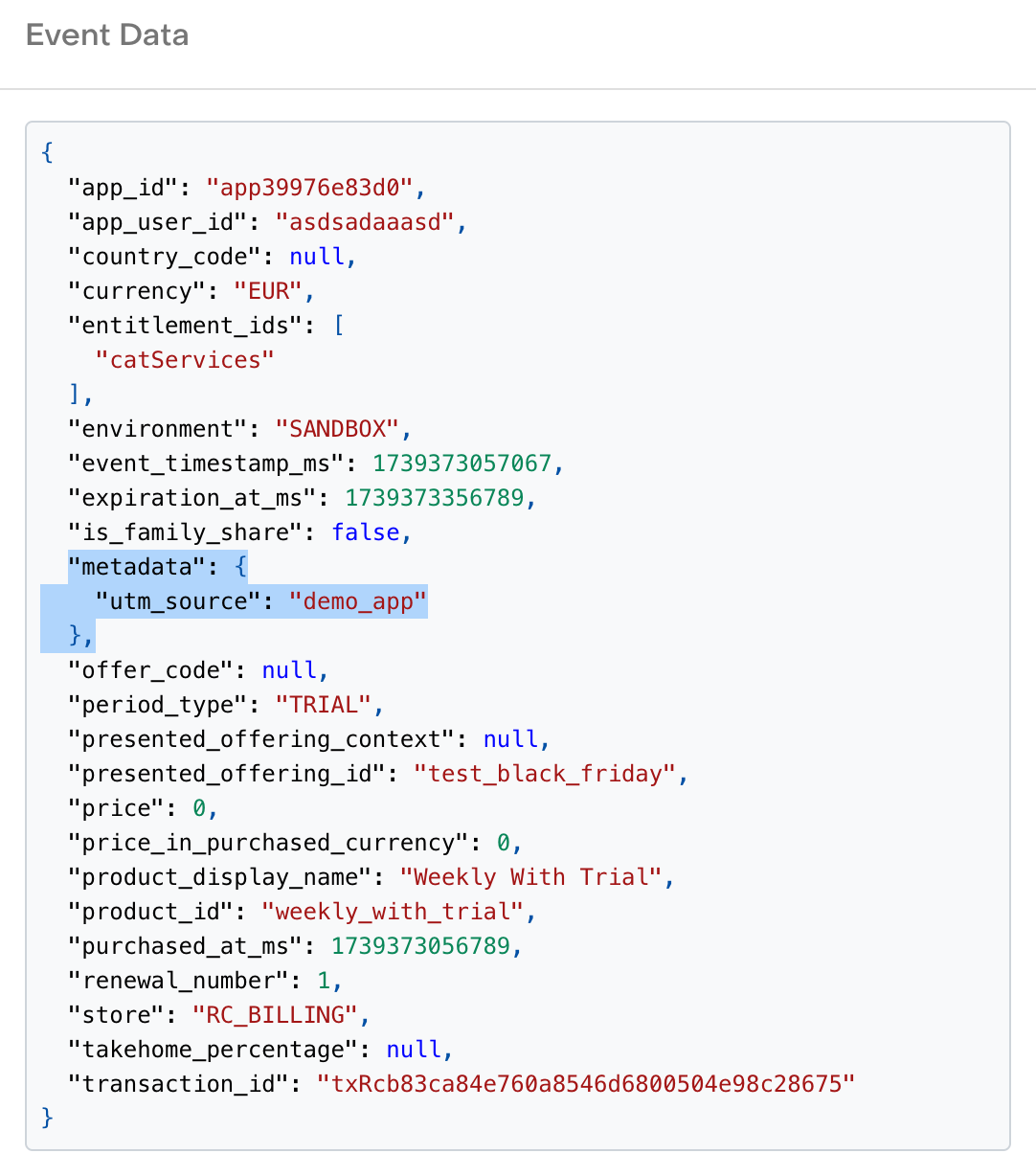Custom Metadata
Web Billing supports custom metadata that you can send when initializing a purchase. The metadata will be propagated to webhook events and the Stripe customer object to enable its use in other systems, such as marketing or attribution tools.
Metadata support
If you're using the Web SDK:
- Custom metadata (key-value pairs) with
string,number,booleanornullvalues can be included with the purchase call. - Any UTM parameters present in the URL are collected automatically.
If you're using Web Paywall Links:
- UTM parameters that are present in the URL are collected automatically.
Supported UTM parameters
Any of the following parameters' values will be stored if they're present in the URL where the purchase is initialized:
utm_sourceutm_mediumutm_campaignutm_termutm_content
Here's an example Web Paywall Link URL, including all UTM parameters: https://pay.rev.cat/wlzoigfbnthvjcaw/?utm_source=google&utm_medium=ppc&utm_campaign=black_friday&utm_term=cat+food&utm_content=emailcta
How to send custom metadata when invoking purchase() in the Web SDK:
When invoking purchase(), you can provide a metadata object using the PurchaseParams interface:
- Web (JS/TS)
try {
const {customerInfo} = await Purchases.getSharedInstance().purchase({
rcPackage: pkg,
metadata: {
a_custom_key: "a custom value",
},
});
if (Object.keys(customerInfo.entitlements.active).includes("pro")) {
// Unlock that great "pro" content
}
} catch (e) {
if (
e instanceof PurchasesError &&
e.errorCode == ErrorCode.UserCancelledError
) {
// User cancelled the purchase process, don't do anything
} else {
// Handle errors
}
}
The metadata property accepts a key-value object with any custom data you want to send along with the purchase.
The accepted values are string, number, boolean and null.
purchases-js will also automatically collect any utm parameters in the URL and send it as metadata when invoking purchase().
How to use the collected metadata
After receiving purchases with metadata included, it can be accessed in the INITIAL_PURCHASE webhook event. The same values are also sent to the Stripe Customer object metadata.
You can see how to use the webhook integration to trigger automations and workflows here.

Opt out of the automatic collection of UTM parameters
You can opt-out of the automatic collection of UTM parameters in the Web SDK by setting the autoCollectUTMAsMetadata flag to false in the configure method.
Here's an example:
- Web (JS/TS)
const appUserId = authentication.getAppUserId(); // Replace with your own authentication system
const httpConfig = {}; // Any setting you want to customize in purchases-js HTTP client.
const flagsConfig = {autoCollectUTMAsMetadata: false};
const purchases = Purchases.configure(WEB_BILLING_PUBLIC_API_KEY, appUserId, httpConfig, flagsConfig);